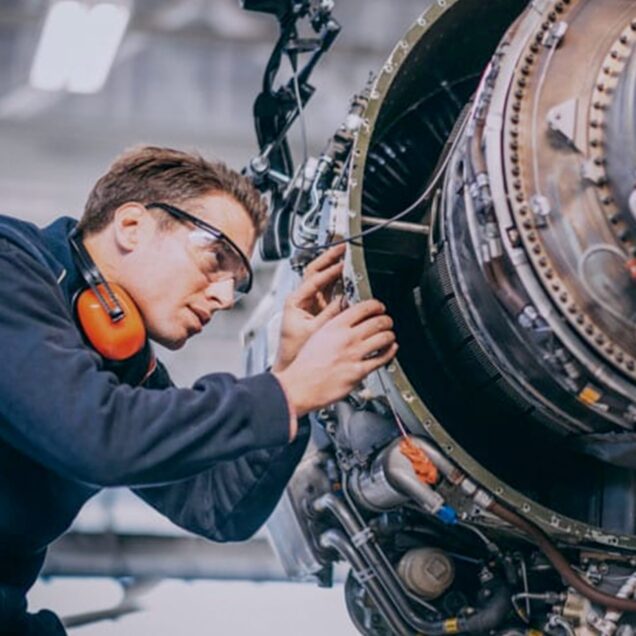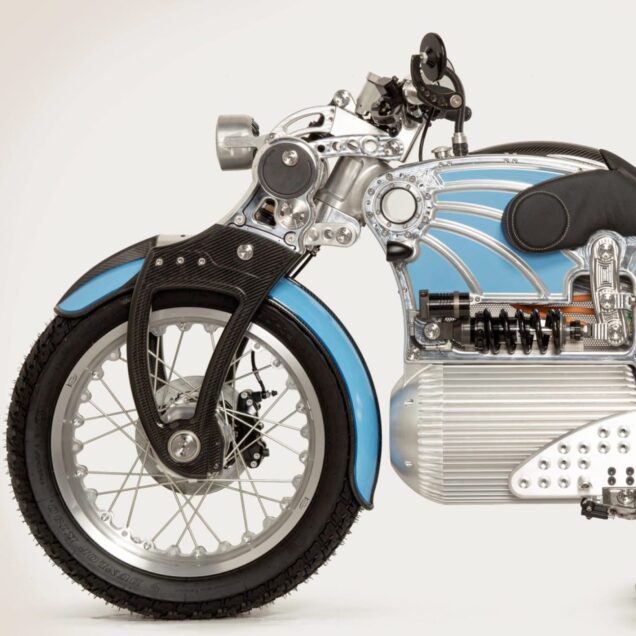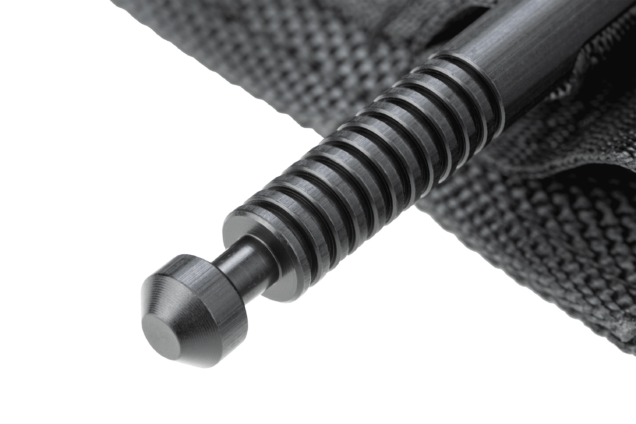Making autonomous inventory possible

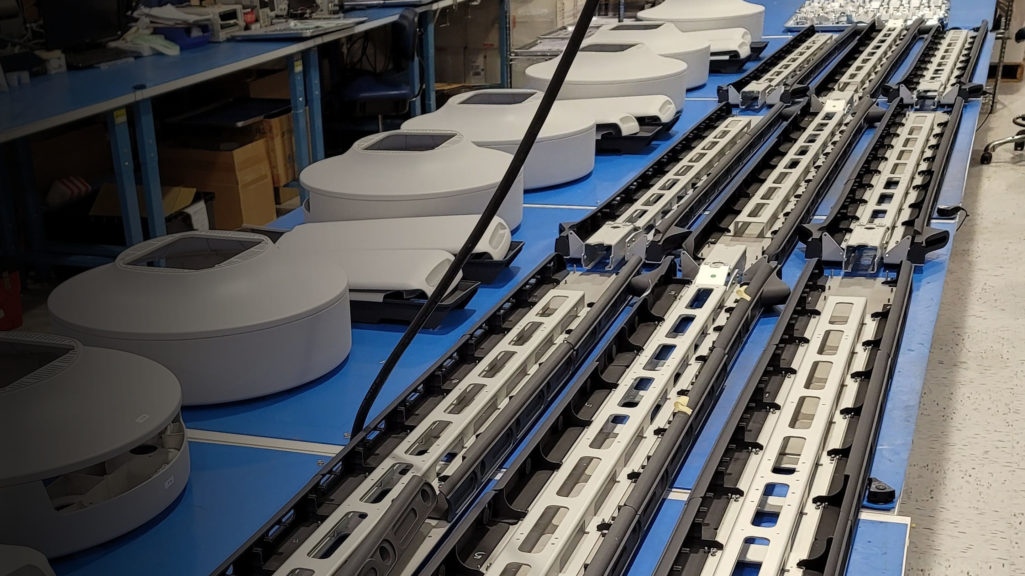
Simbe Robotics needed a low-cost option to manufacture small batches of critical parts for their Tally 3.0 autonomous retail intelligence robot. Rigorous quality standards and a consultative approach made Fast Radius the right manufacturing partner to bring Tally 3.0 robots into store aisles around the world.
the challenge
Industrial-grade parts for an agile startup
Simbe Robotics, an advanced retail intelligence company, was ready to launch their Tally 3.0 robots into stores but wasn’t ready for the expense of injection molding tooling. Fast Radius helped them find a cost-effective alternative that would allow them to scale.
Simbe deploys Tally 3.0 robots to autonomously scan retail store aisles to take inventory and identify out-of-stock products. By connecting directly with the store’s inventory management system to identify products that could be restocked, Tally robots create operational efficiencies and improve customer experience. The robots have to be aesthetically pleasing and durable enough to weather their surroundings, as they interact with customers, shopping carts, pallets, and more.
Initial prototypes of the robots were made with CNC machining, but as Simbe looked to scale, they came to Fast Radius to find a more cost-efficient manufacturing process for their plastic parts. Tooling for injection molding parts was too costly for their small batch sizes and would have made further iterations and improvements expensive. Fast Radius helped Simbe choose urethane casting for the majority of parts, decreasing cost-per-part for small volumes and allowing them to retain the flexibility to make changes easily.
Fast Radius’ expert team has developed repeatable processes to ensure Tally 3.0 cast urethane parts meet rigorous quality standards. Plus, as an experienced multi-process manufacturer, Fast Radius has been able to help Simbe navigate and adapt part designs as needed. Some parts have required different manufacturing processes, like CNC machining for parts too small for urethane casting, and Fast Radius has worked consultatively to determine the right process for each part and to ensure parts match aesthetically through a mixture of adhesive, silk screen printing, and painting in post-processing.
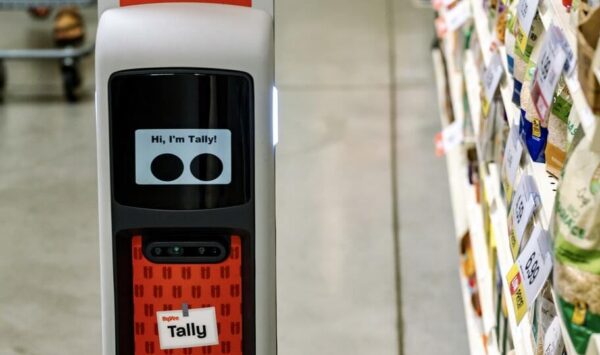
As a growing start-up, we need to be able to manufacture our products with the quality and economics of high-volume production while staying agile and building in small batches. With Fast Radius, we’ve dialed in the low-cost, high-quality manufacturing we need to make that happen.

making it possible
Reliable results from flexible low-volume manufacturing
1. Consultative material selection
Fast Radius’ engineers initially matched a polyurethane to the material properties Simbe needed for manufacturing. After field testing robots, Simbe wanted to evaluate other materials that could be more resistant to wear and tear. Fast Radius provided a full analysis of current materials and alternative options to enable Simbe to make the best decision based on material cost, material performance, and how alternative materials would change the production process.
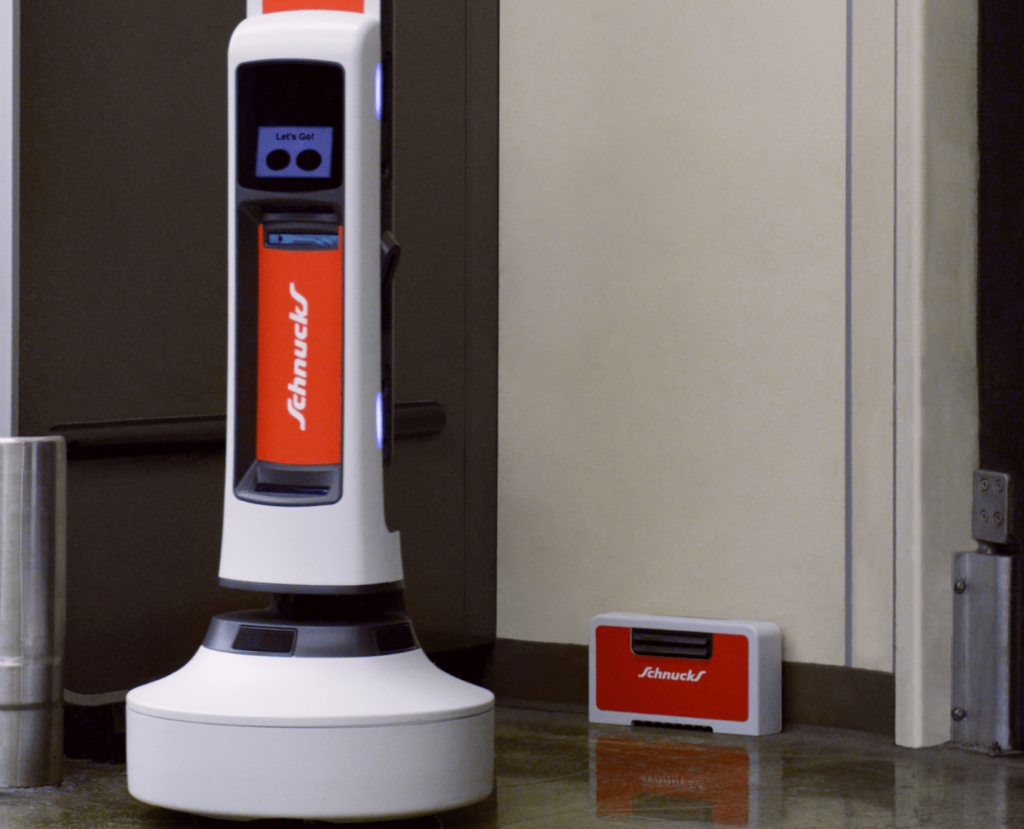
2. An agile partnership
As Simbe’s designs have evolved and supply chain shortages have impacted procurement for robotics equipment, they’ve needed an agile manufacturing partner to help them adapt. Specifically, when supply chain issues meant Simbe had to switch the camera used in Tally 3.0, Fast Radius helped them modify designs around the new camera, manufacturing parts in low volumes to adapt quickly without waste.
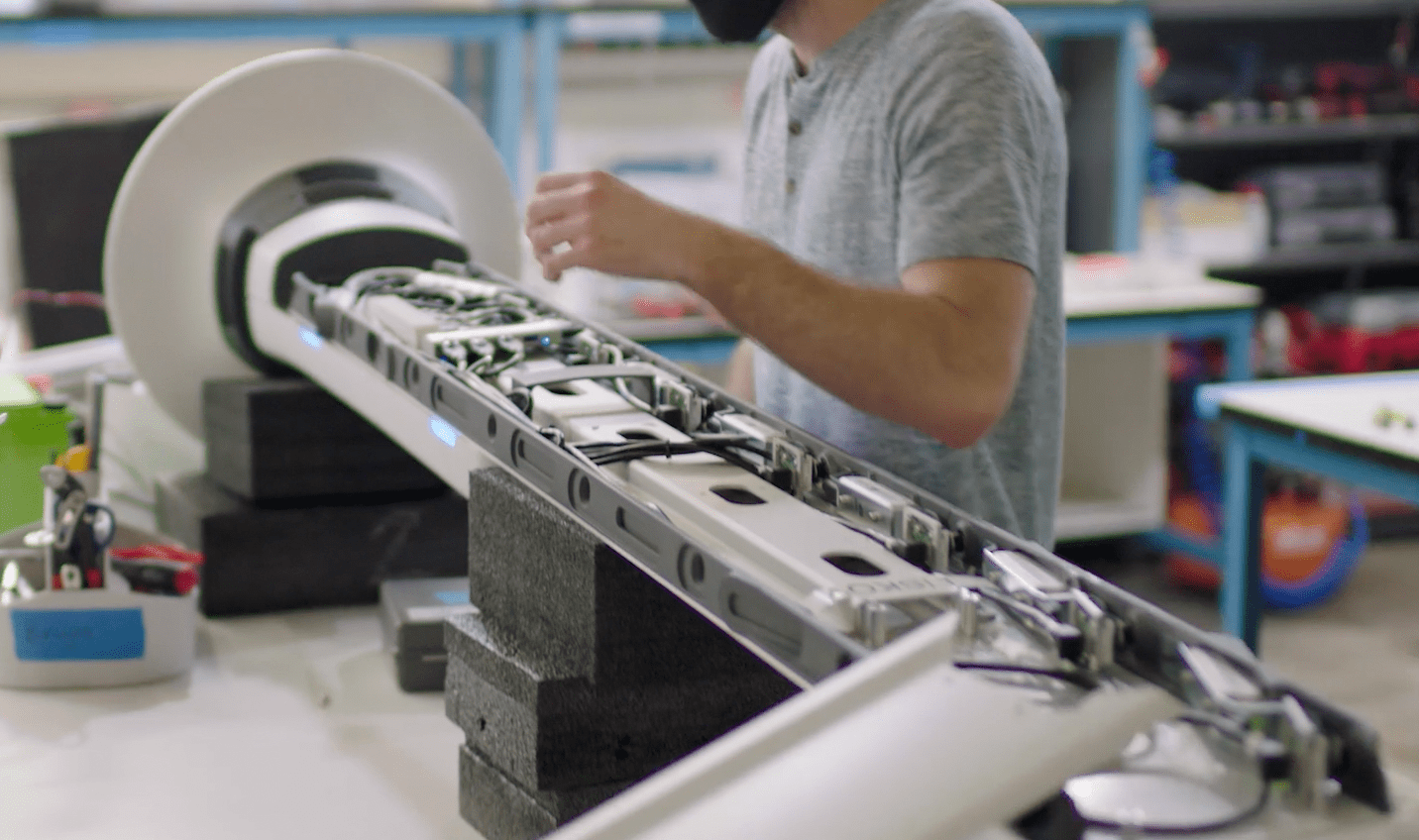
3. Consistent, reliable quality
The most important quality factors for Tally 3.0 are dimensional tolerancing, appearance, and durability. While urethane casting can’t typically achieve the tight tolerances of injection molding, Fast Radius has refined materials, designs, and processes to ensure that Simbe’s cast urethane parts meet specifications. With rigorous attention to detail and fit tests for parts, assembly of Tally 3.0 robots always goes smoothly.
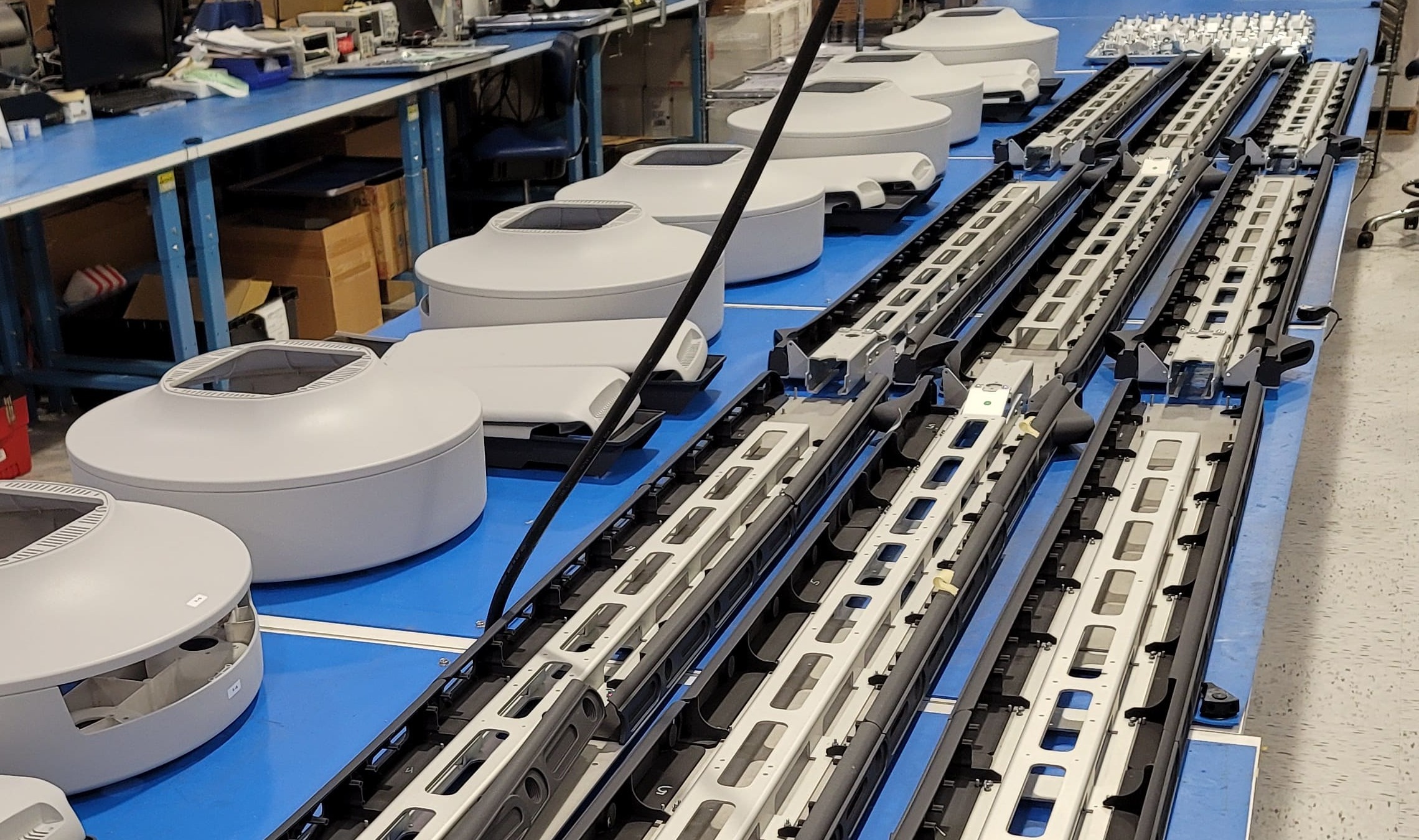
4. Budget-friendly manufacturing
BOM cost is a critical factor for Simbe Robotics. Over the course of their partnership, Fast Radius has helped Simbe improve quality while reducing costs by evaluating design, material options, batch size, and more. Fast Radius and Simbe have worked together to determine favorable payment terms and manufacture low-volumes as needed to manage expenses while scaling production of Tally 3.0.
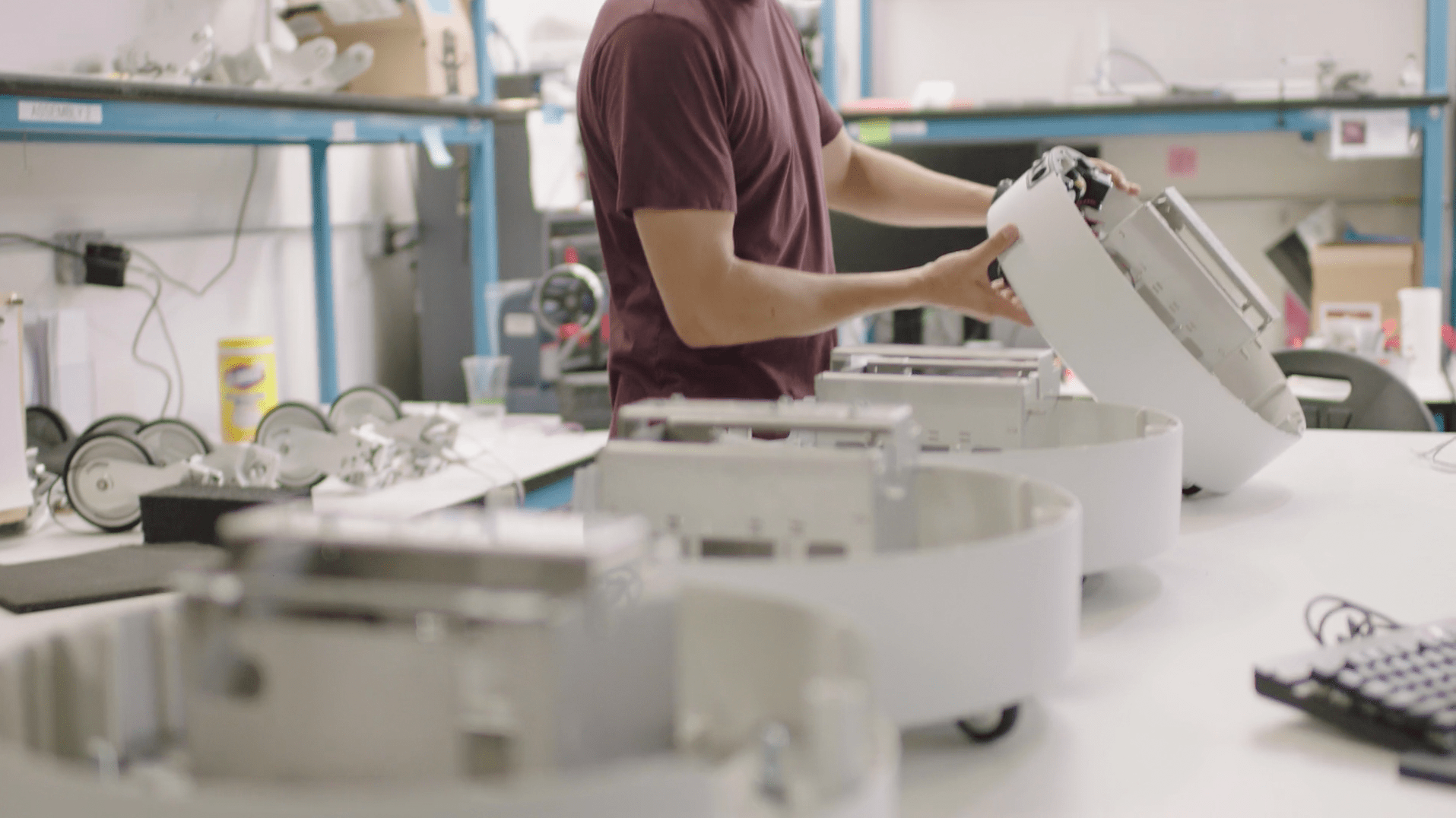
Gallery
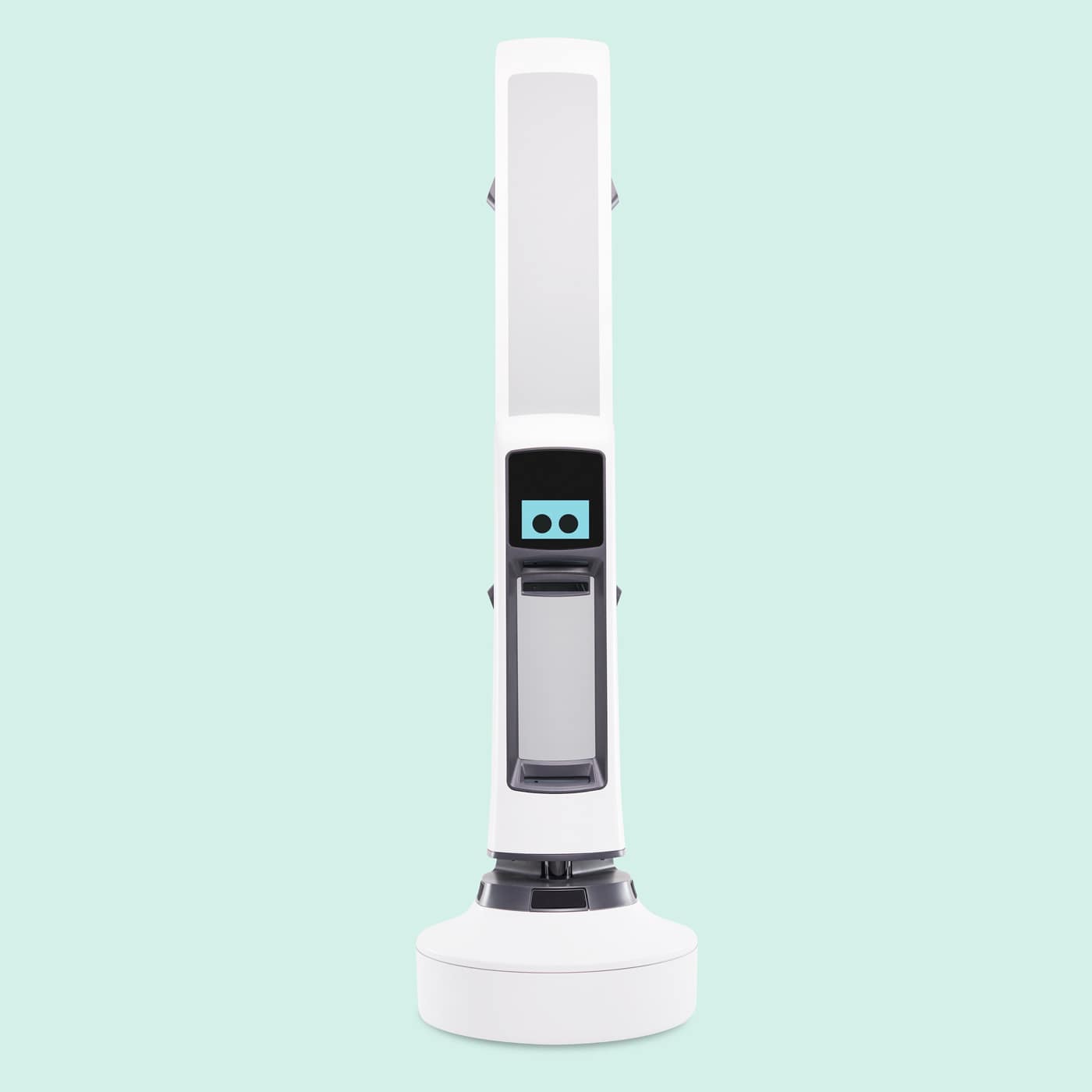
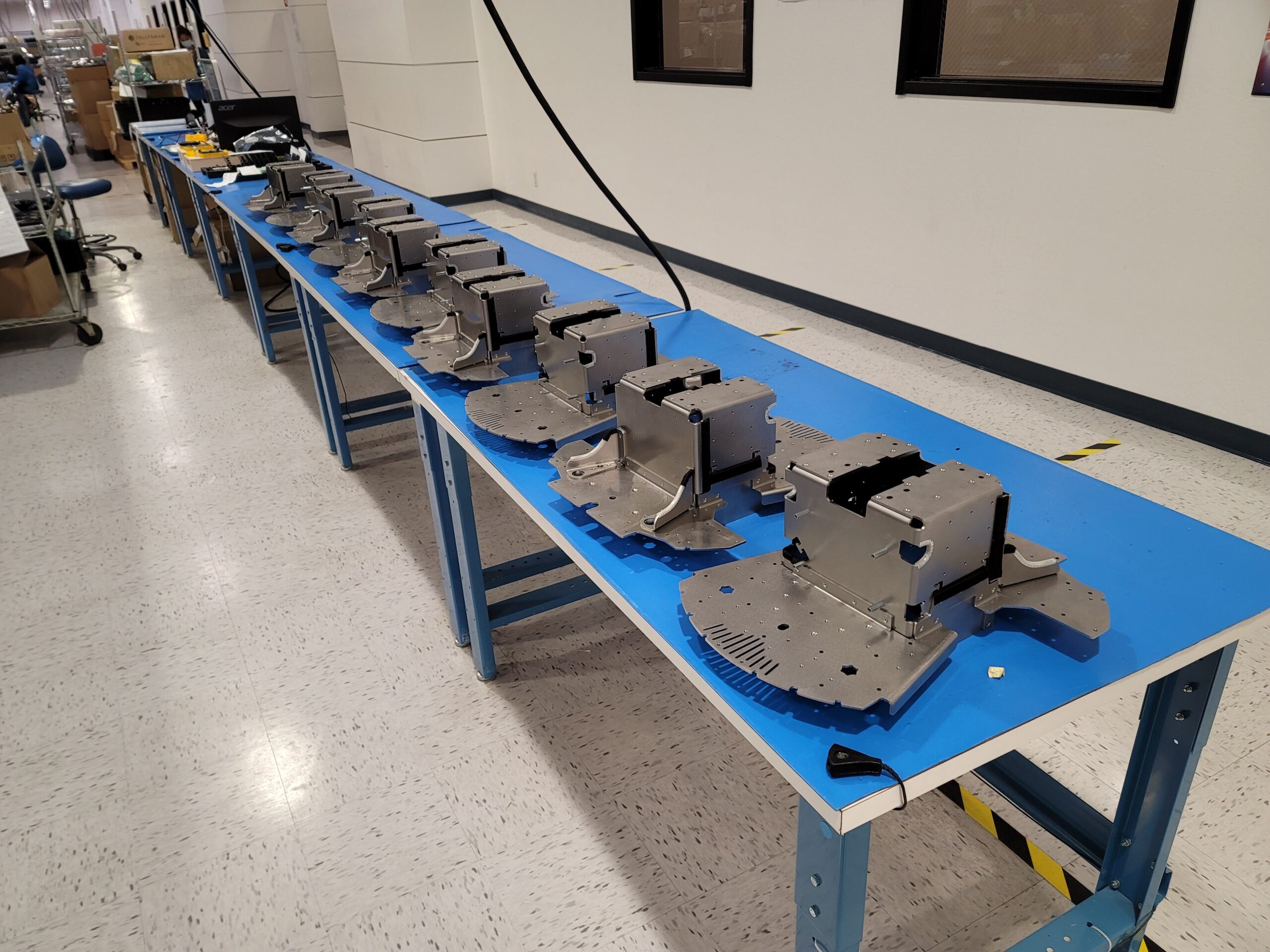
the results
Quality and savings through small-batch manufacturing
100+
Tally 3.0 robots deployed
100%
of cast urethane parts made by Fast Radius
$30,000
saved in engineering costs
Ready to make your parts with Fast Radius?
Making smarter construction possible

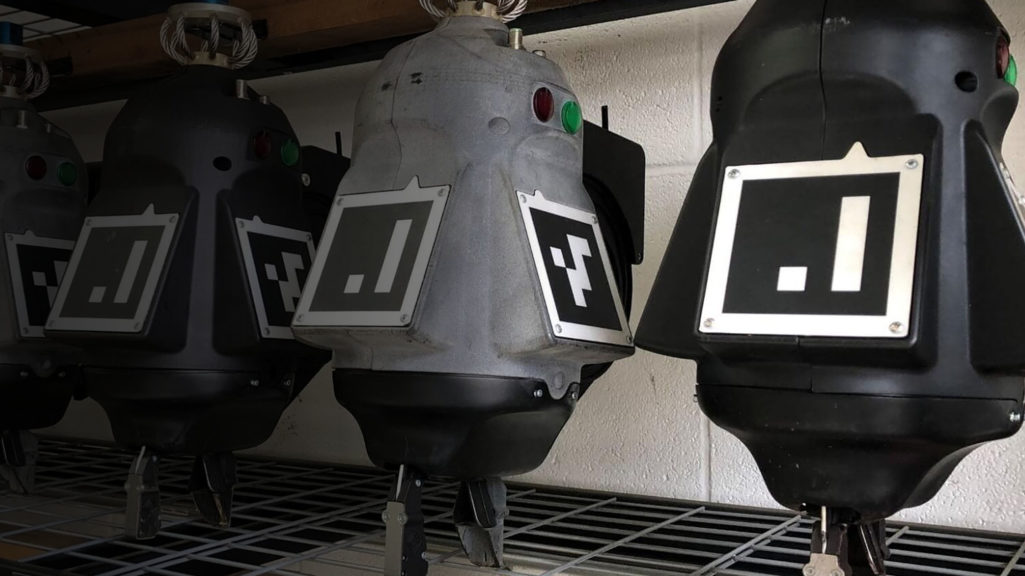
Advanced Construction Robotics (ACR) needed a reliable manufacturer for critical parts for their new rebar-tying robot, TyBot. With Fast Radius, they found a multi-process manufacturing partner to quickly scale their product and increase productivity and safety on job sites.
THE CHALLENGE
Building a scalable supply chain for a growing robotics startup
ACR came to Fast Radius to 3D print a small number of parts and found an ongoing multi-process manufacturing partner to streamline production for the majority of TyBot’s critical components.
When ACR came to Fast Radius, they were seeking a contract manufacturer to produce HP Multi Jet Fusion (MJF) parts for their TyBot prototypes. Impressed by Fast Radius’ quality standards and looking to scale quickly, ACR brought Fast Radius on to produce larger portions of their bill of materials across multiple manufacturing processes. Fast Radius provides MJF 3D printing, urethane casting, and CNC machining for ACR, making the housing and majority of the interior parts for the key module on their rebar-tying robot.
The robot’s parts interact directly with rebar, so they need to be able to withstand significant wear-and-tear in real-world use. Fast Radius was able to pivot with ACR, supporting production as they tried different materials and ultimately selected PA12 for TyBot’s outer housing and cast urethane for internal parts.
As a startup, ACR has moved through a number of iterations and field-testing cycles with TyBot. As TyBot has evolved, ACR has used the Fast Radius Virtual Warehouse™ to order parts on-demand in small batch sizes, mitigating waste and costs from product obsolescence and staying within production timelines for new and spare parts to maintain a universal fleet of robots.
Partnering with Fast Radius has helped ACR quickly scale production of TyBot while continuing to improve the robot’s performance without the costly time, resource, and manpower impact of multi-sourcing parts. By maintaining a lean and agile manufacturing partnership, Fast Radius has enabled ACR to effectively plan for the future.
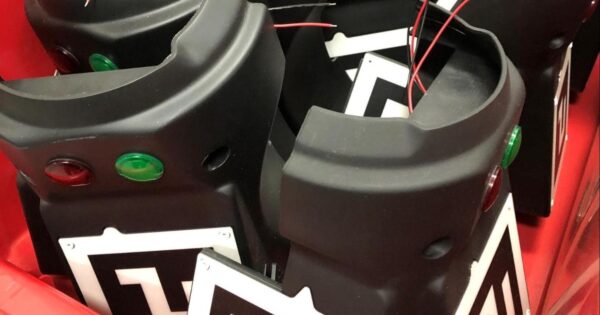
The ability to single-source parts through Fast Radius has allowed us to turn up the knob on production because we can always count on getting high-quality parts. Having a partner that we can fully rely on has helped us grow our business without worrying about supply chain disruptions or delays.

MAKING IT POSSIBLE
A single trusted source for expanding multi-process needs
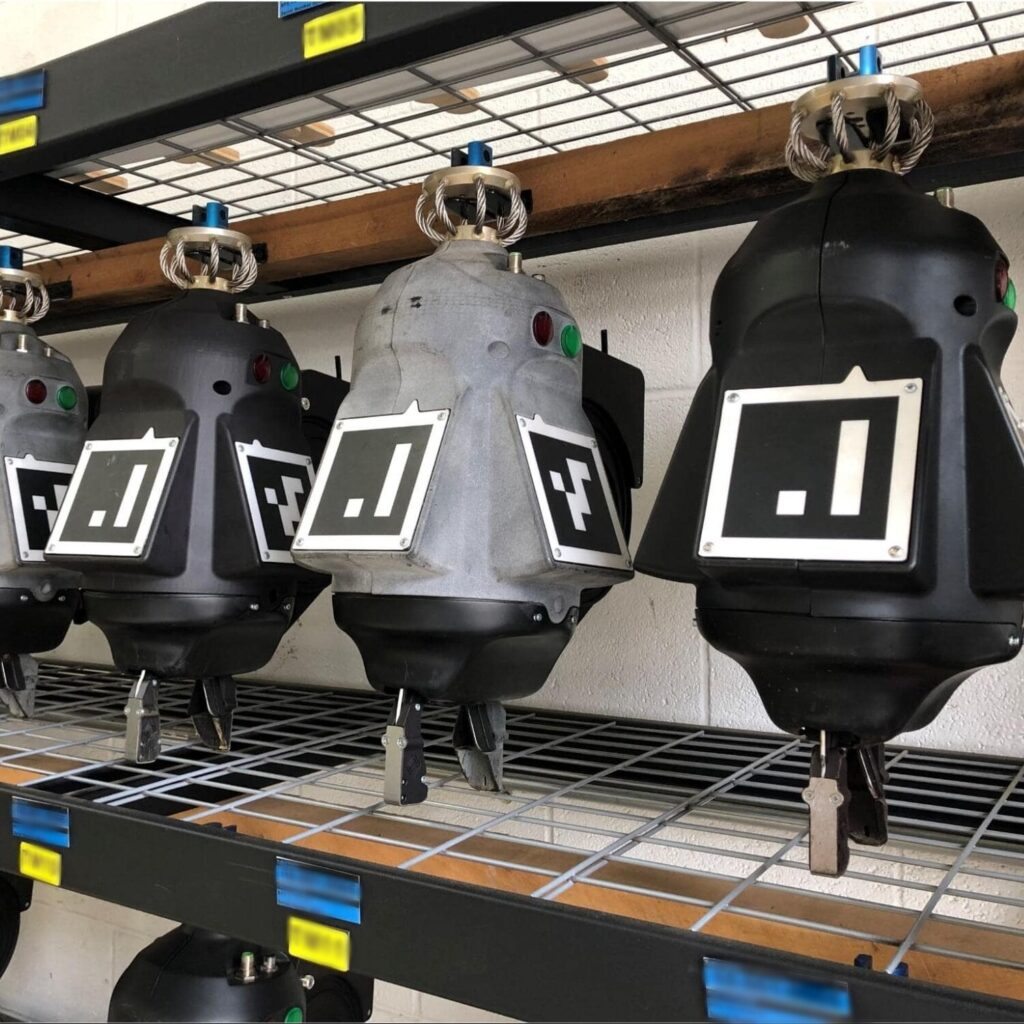
1. Multi-process expertise
ACR needed to simplify ordering, communication, and their supply chain. With CNC machining, HP MJF, and urethane casting capabilities, Fast Radius was the ideal partner. Having a single reliable source for the majority of their components made it easy for ACR to seamlessly streamline their TyBot part supply.
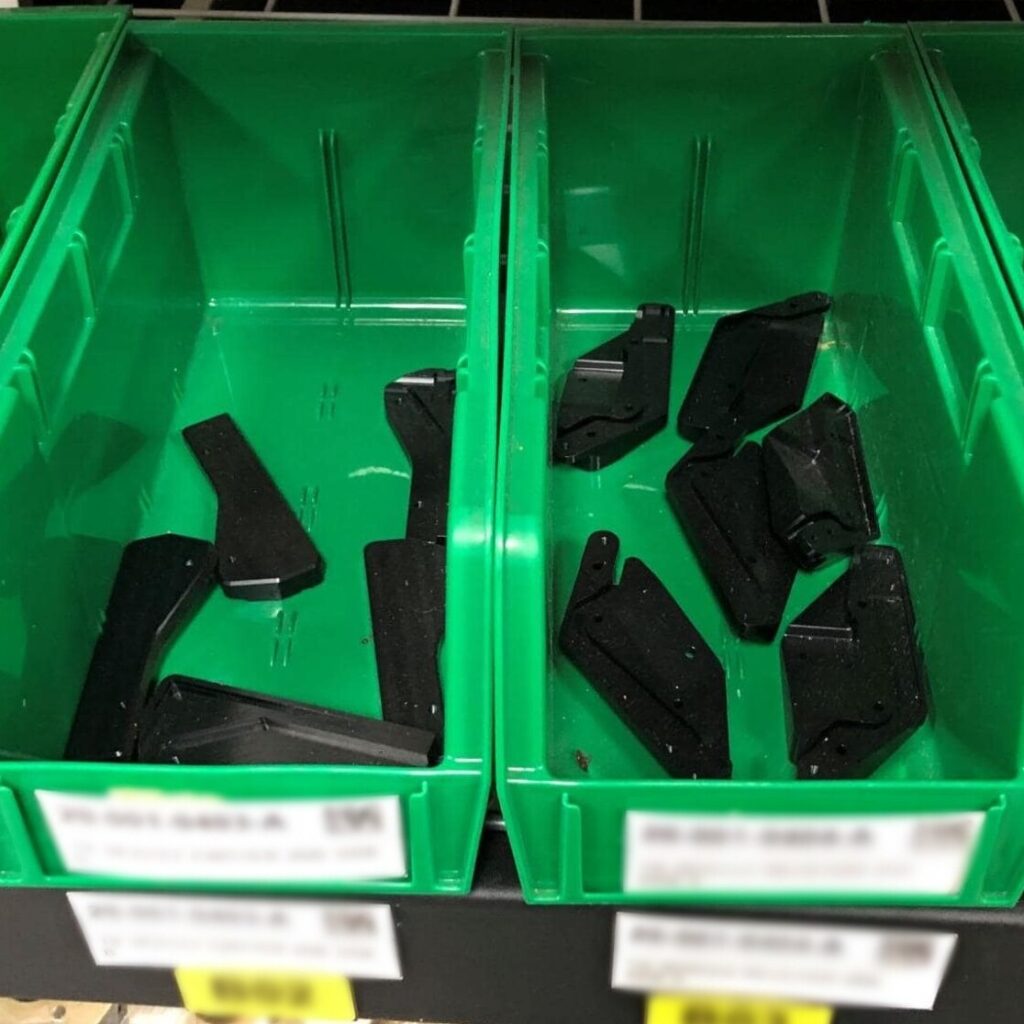
2. Steady supply chains
ACR first turned to Fast Radius for CNC machining after an overseas supplier delivered poorly manufactured parts that, after import fees, were more expensive than parts from Fast Radius. Since then, ACR has used Fast Radius for their ongoing CNC needs. In addition, as other manufacturers’ production capabilities have suffered from global supply chain issues, Fast Radius has been the only supplier ACR has been able to rely on for consistent production.
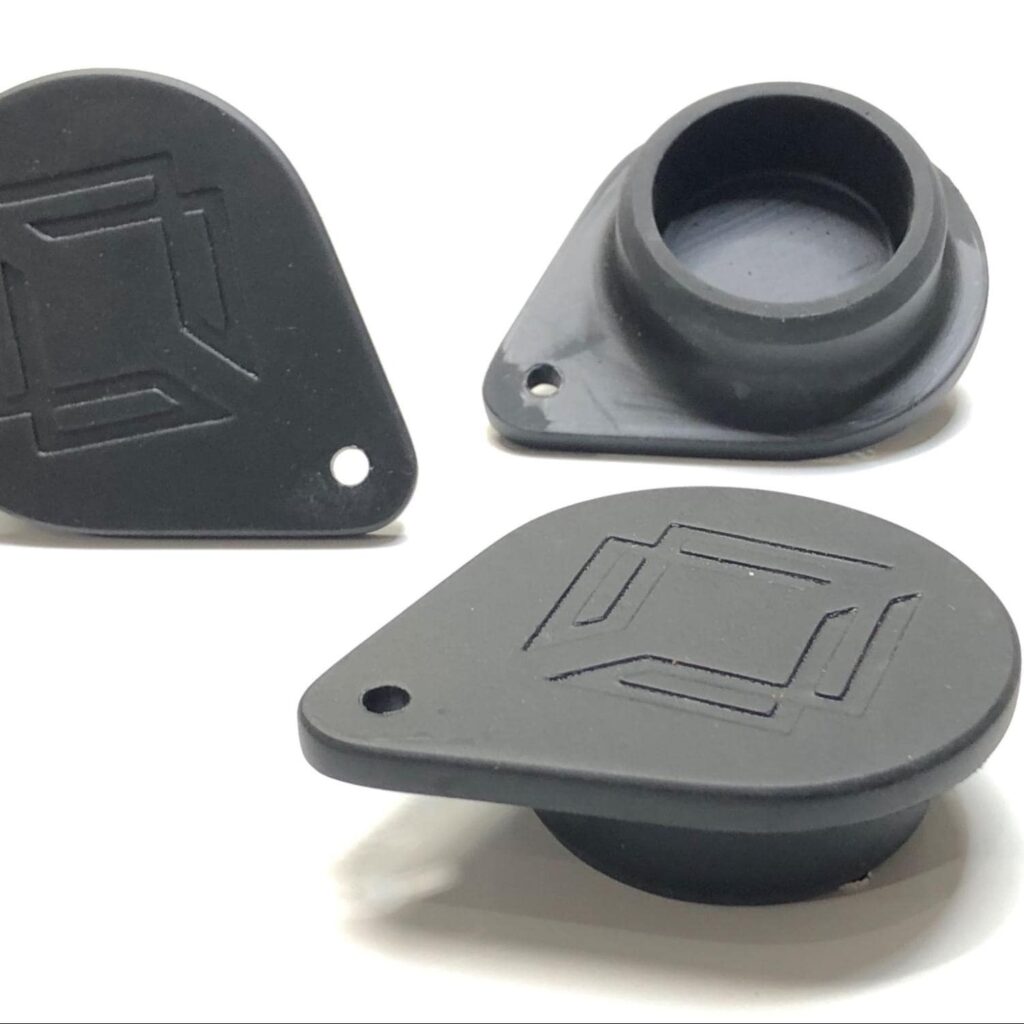
3. Low-volume production
With initial low-volume needs, ongoing design iterations, and new retrofitting and spare parts programs, the ability to manufacture low quantities at reasonable costs has helped ACR manage inventory and expenses as they grow production. In one situation, they were tasked with retrofitting a malfunctioning part for a customer on an aggressive timeline. Fast Radius was able to deliver the small batch of parts a week sooner than expected.
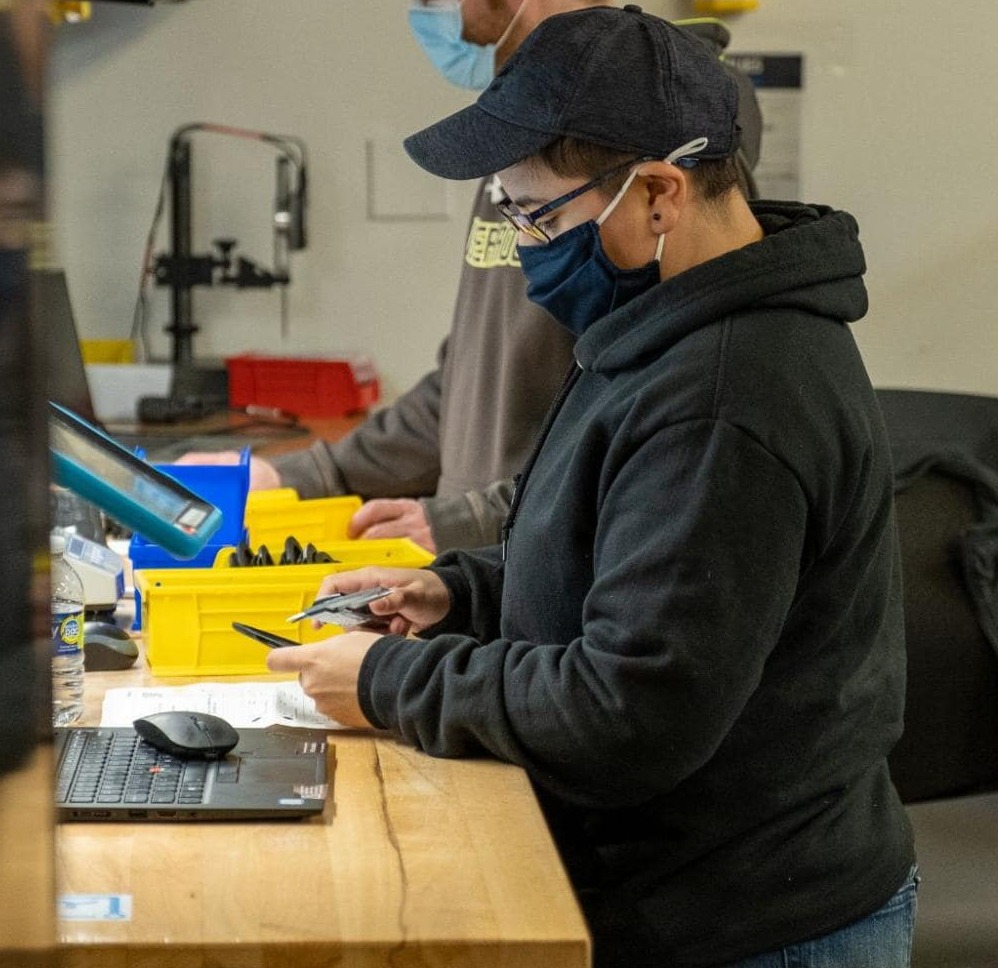
4. Reliable quality
As a single, trusted source for the majority of TyBot’s components, Fast Radius has enabled ACR to scale up without worrying about quality. First-article approval processes have allowed ACR to identify and resolve design flaws early, and Fast Radius’ high standards made it easy for ACR to name Fast Radius as a preferred vendor.
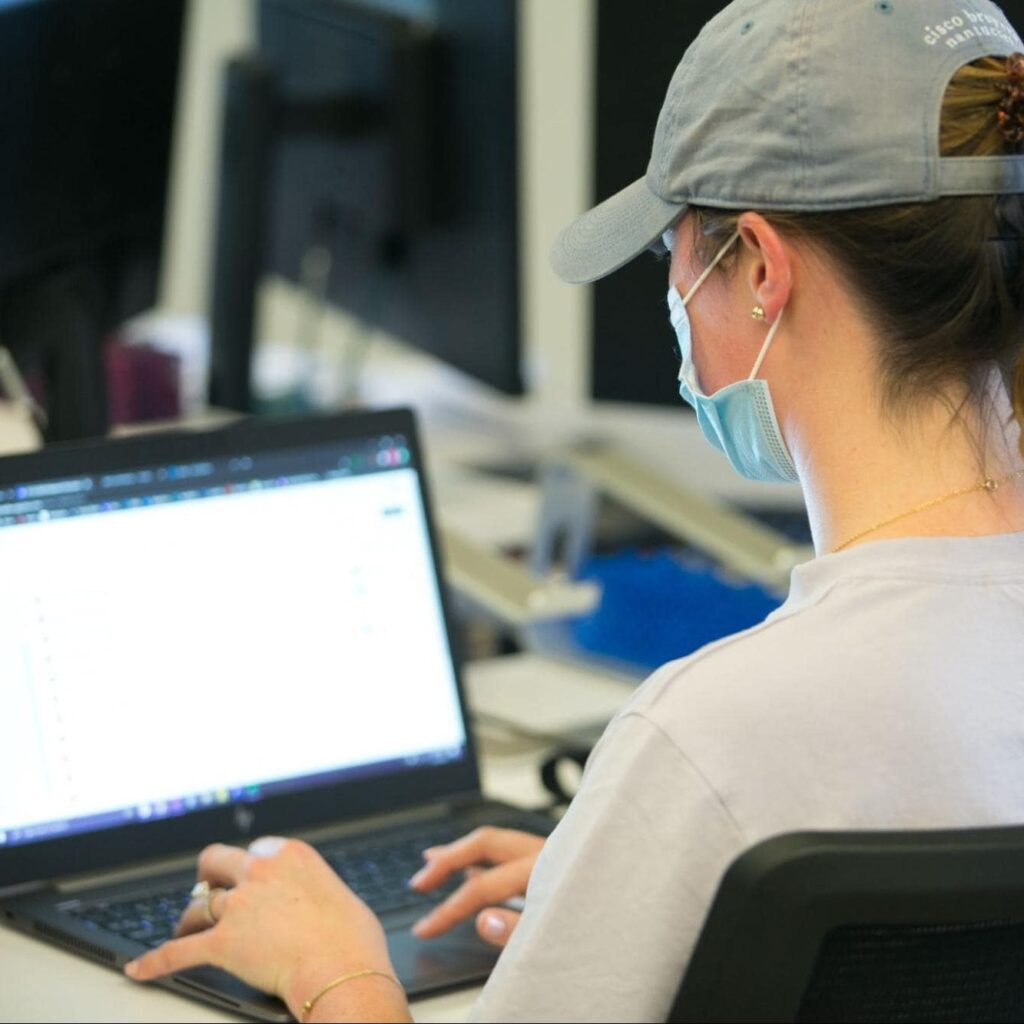
5. Dedicated customer support
For ACR, accessible support is critical. With dedicated Fast Radius resources, it’s always simple to ask questions, quote projects, and make important decisions quickly. Open lines of communication and a true partnership have kept projects on time and on budget and helped ACR accurately plan for future growth. While many manufacturers make it difficult to get support, with Fast Radius, ACR can get in touch with experts whenever they need.
THE RESULTS
Scaling a startup with a reliable supplier for critical components
3
manufacturing processes with one point of contact
45%
custom-engineered components made by Fast Radius
80
parts manufactured by Fast Radius in each TyBot
Gallery
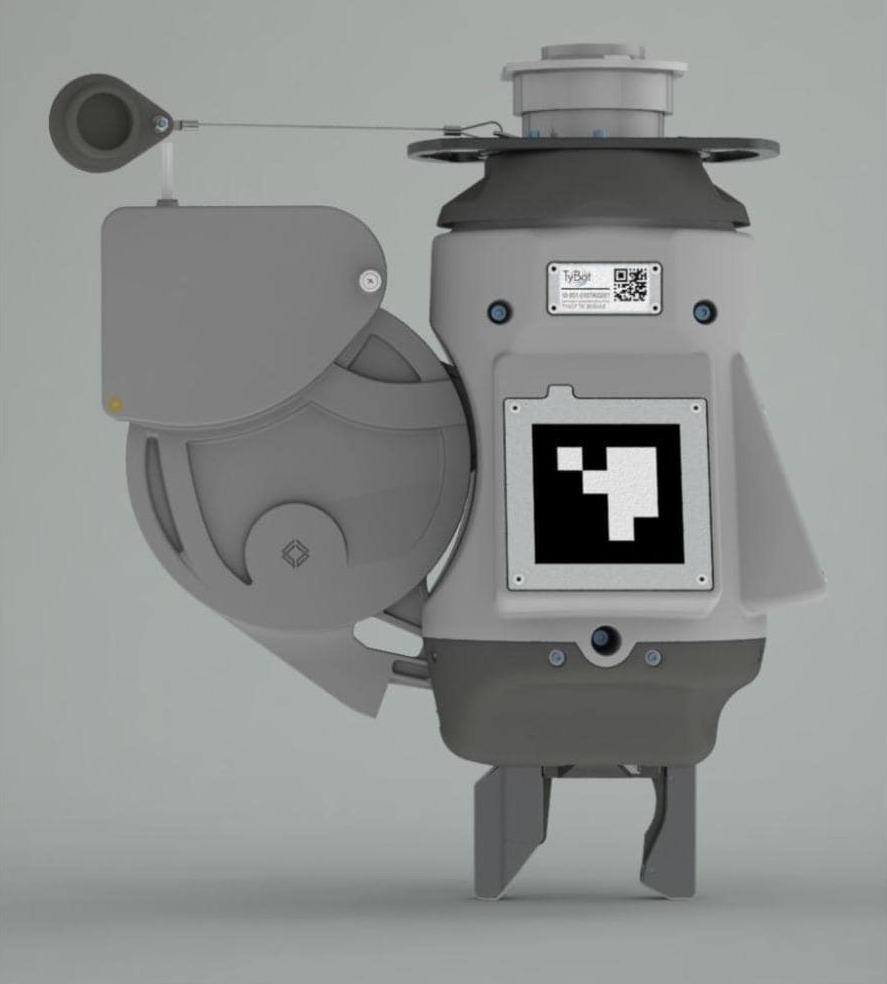
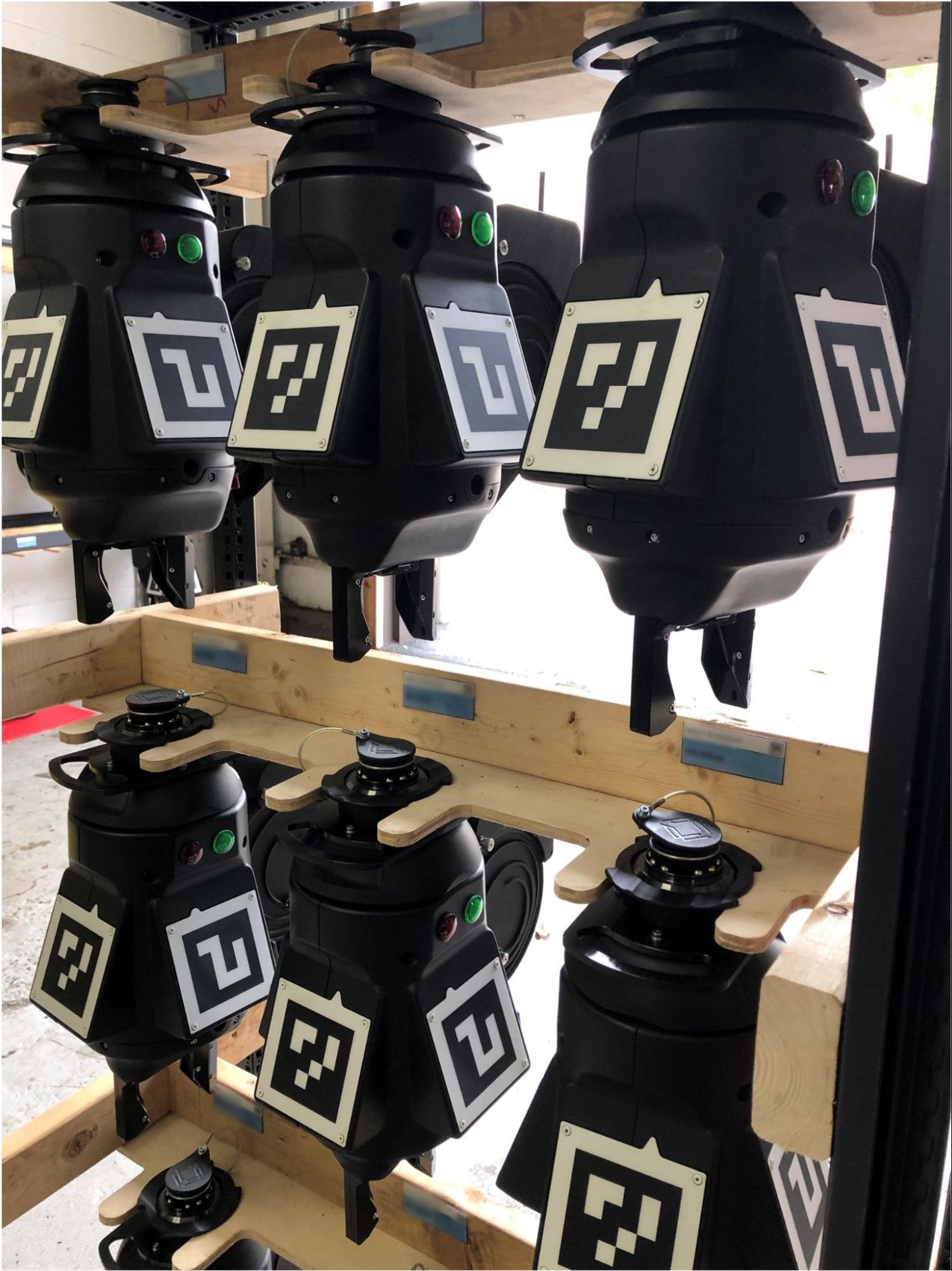
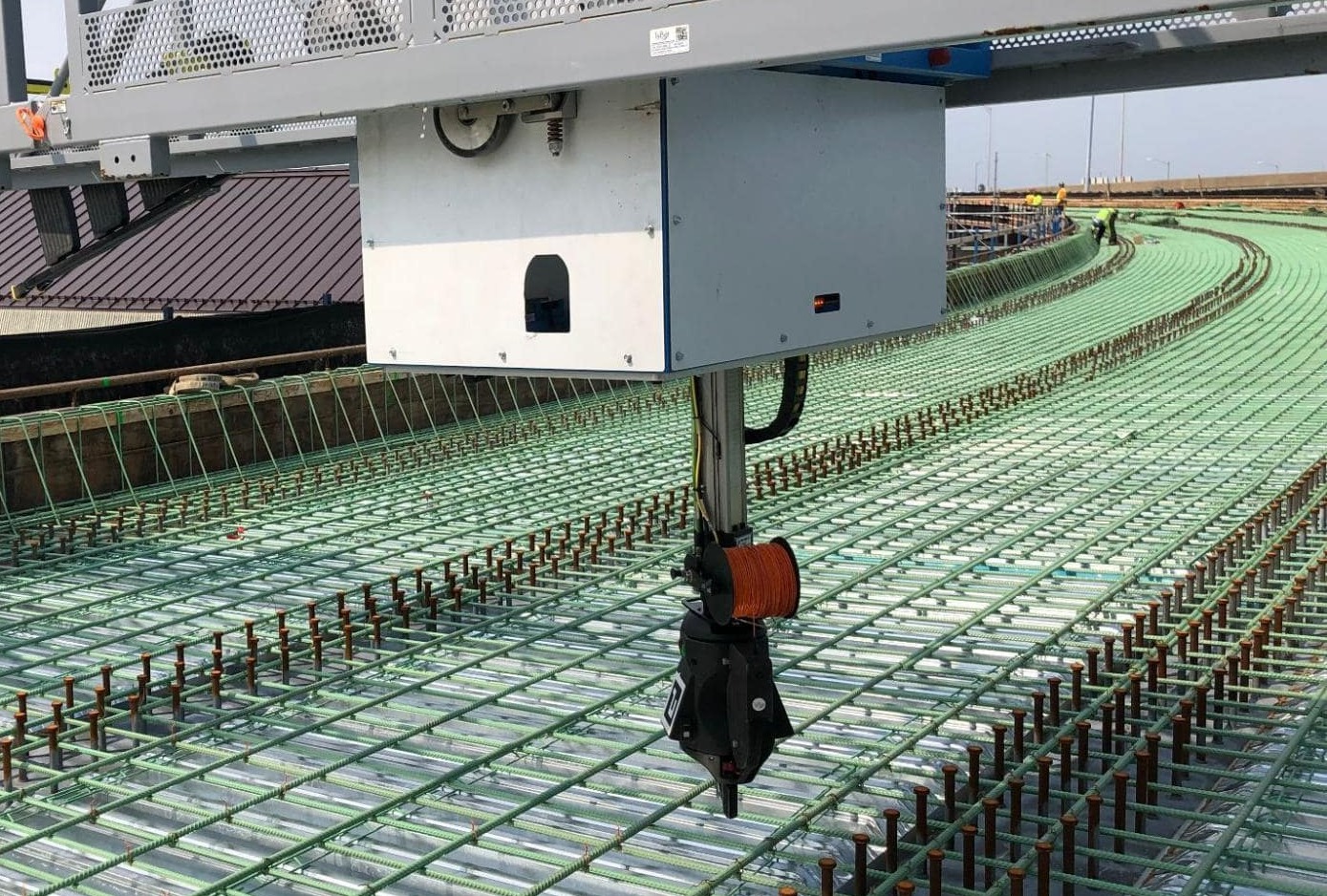
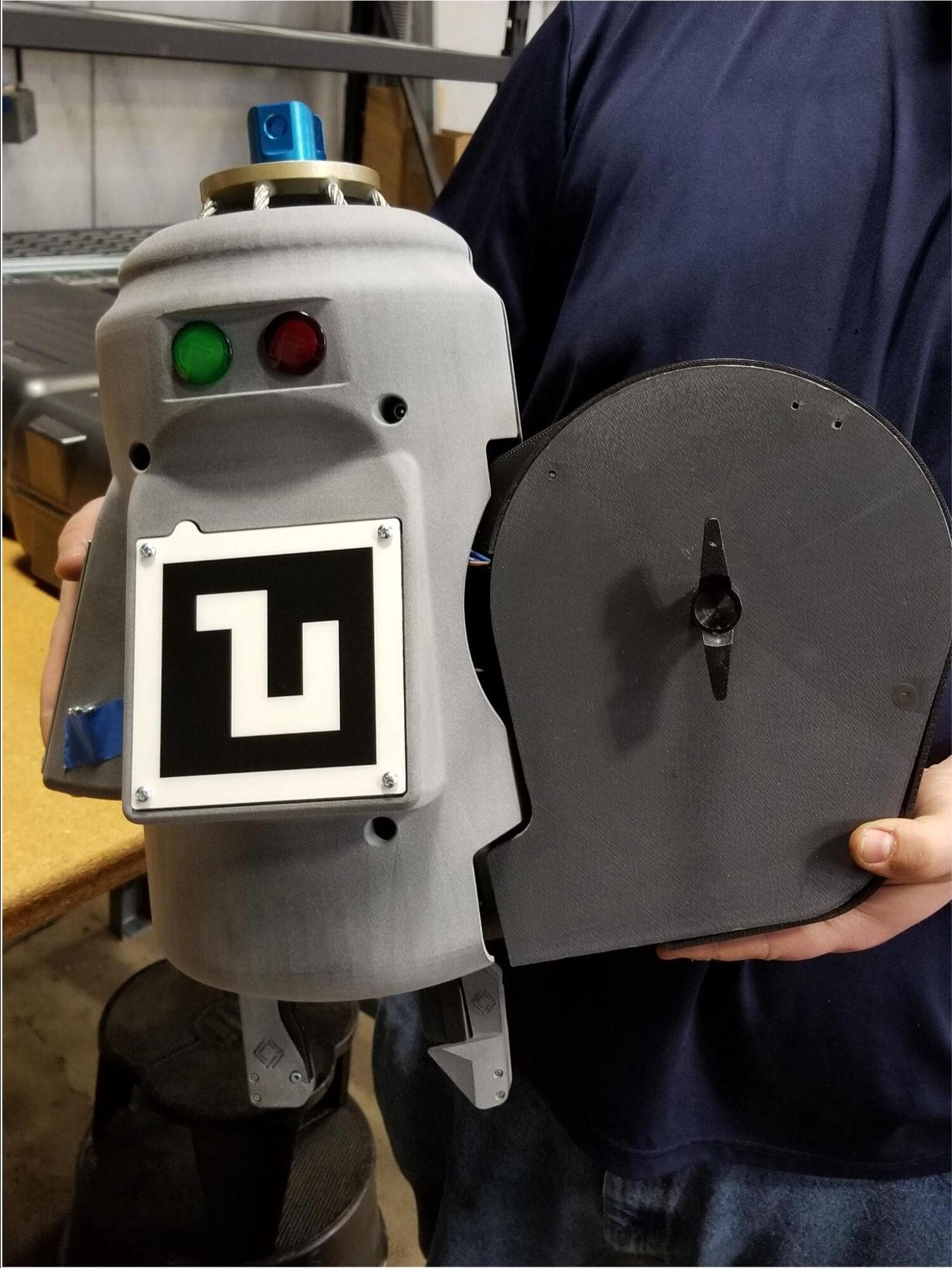
Ready to make your parts with Fast Radius?
Making cosmetically designed robots possible

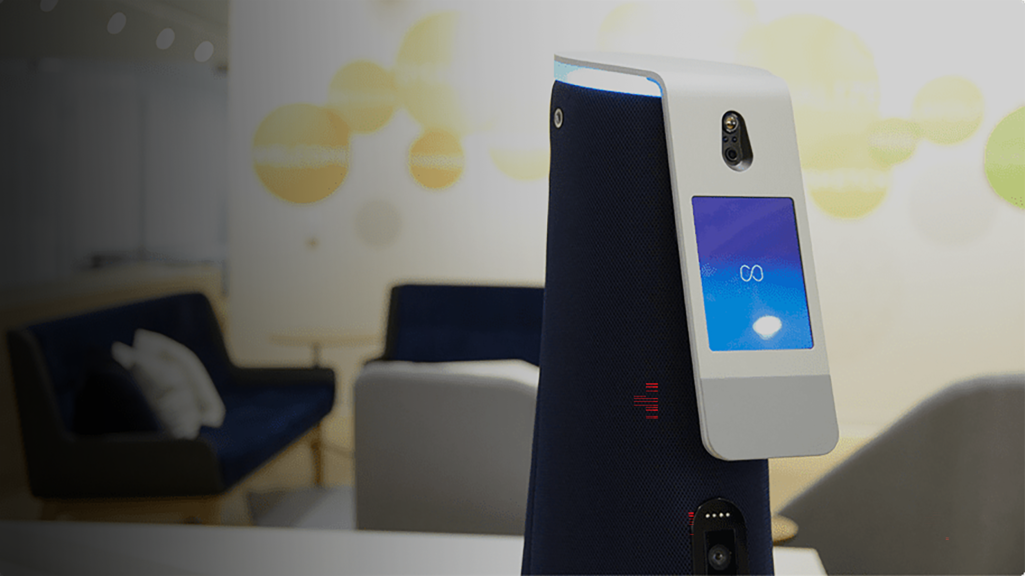
Cobalt Robotics wanted to make their security robots more approachable. Fast Radius met their strict specifications and reduced their urethane casting costs by 60%.
THE CHALLENGE
Making humans comfortable working with robots
Cobalt Robotics wanted to make approachable security robots using thoughtfully manufactured cosmetic components.
Cobalt Robotics produces security robots that make spaces safer, more secure and more productive. But, according to Alejandro Ramirez, Lead Mechanical Engineer at Cobalt, the company’s true end product is much more than that.
“Our mission is to make robots that are useful to society,” said Ramirez. “Our goal is to move toward a harmonious relationship between machines and humans.”
Cobalt’s robots are purposefully designed to not appear humanoid. But because the robot operates in spaces where humans work and live, it was important that the machine still exude an approachability and warmth that would make people feel comfortable interacting with it. That means special attention had to be paid to the cosmetic components of the machine. It was important to Cobalt that the cosmetic plating was made exactly to their design specifications, so they partnered with Fast Radius to manufacture these critical parts.
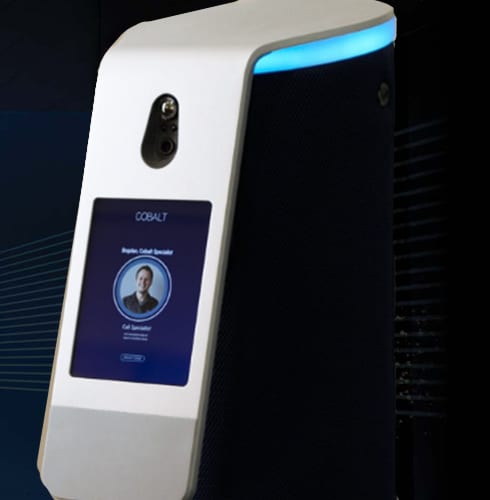
Fast Radius reduced our cost to manufacture urethane parts by 62%, painting and finishing by 90% and 3D printing by 33%.
MAKING IT POSSIBLE
Reducing costs and managing project logistics
1. Advanced manufacturing expertise
The robotics industry moves at an incredibly fast pace. Design decisions and rapid iterations are constantly at play. Fast Radius met Cobalt’s need for speed and agility by providing fast response times, ongoing communication and advanced manufacturing expertise across different processes — which was handy when it came to fixing production errors.
2. True manufacturing partnership
Prior to working with Fast Radius, Cobalt struggled to find a cost-effective supplier that could deliver on the exact specifications of the product. Furthermore, most suppliers were just order takers and didn’t work with Cobalt’s team to find production improvements. Fast Radius advised that new CNC master patterns would be more accurate than Cobalt’s original FDM ones. This discovery resolved previous fitment issues and the team was able to come up with a better, more cost-effective way of producing cast urethane molds for the parts. The changes saved Cobalt 60% on urethane casting production.
3. A commitment to quality
The cosmetic plating was critical to creating a seamless look that would be inviting to the people interacting with the robots. Because of this, the quality considerations were twofold: The parts had to be strong and reliable, and they had to meet high aesthetic standards. From the start, Fast Radius recognized how important quality was to Cobalt, so the team was willing to go through multiple rounds of sample production and feedback in order to get the job done right.
4. Exceeding quality requirements
Part of Fast Radius’s collaboration with Cobalt involved manufacturing plastic mounts meant to house directional technology and three-dimensional depth sensors. By ensuring the precision, quality and accuracy of these manufactured parts, Fast Radius enabled Cobalt’s robots to safely navigate dynamic human environments, encouraging positive human-machine interaction – part of Cobalt’s core mission. In the end, Cobalt reported that Fast Radius consistently met or exceeded Cobalt’s quality requirement of a 95% component yield.
5. Logistics made easier
One of the biggest benefits of working with Fast Radius is the true end-to-end service provided. Fast Radius was helpful in troubleshooting manufacturing issues as well as managing the logistics of the project. Parts were shipped quickly and easily across the globe thanks to Fast Radius’s partnership with UPS.
“Having the Fast Radius team manage all of the logistics was a huge help to my team,” said Ramirez. “We saved about two weeks in overall project time per part produced by allowing Fast Radius to handle those facets of the project, allowing my team to focus on technical aspects.”
THE RESULTS
A cost-saving manufacturing partnership that delivered quality robotics parts and seamless logistics
7%
overall cost reduction
2 weeks
cut off overall project time
62%
urethane manufacturing cost reduction
90%
painting and finishing cost reduction
33%
3D printing cost reduction
Gallery
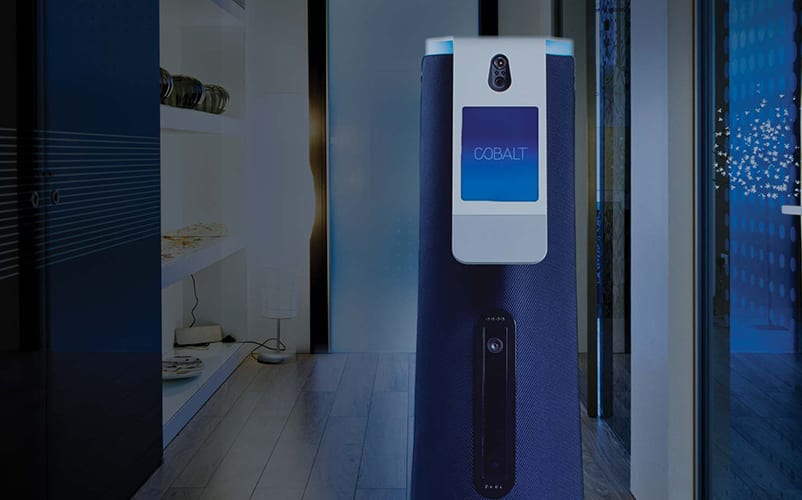
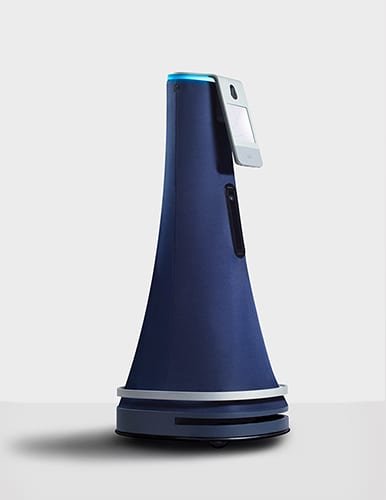
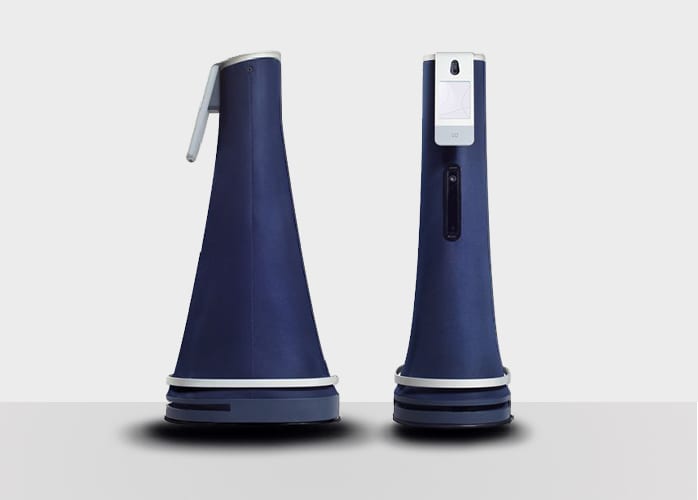

Ready to make your parts with Fast Radius?
Making customized logistics possible
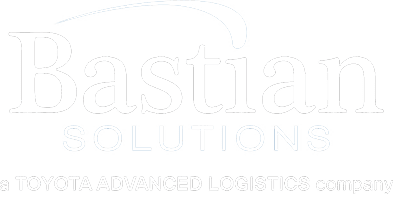
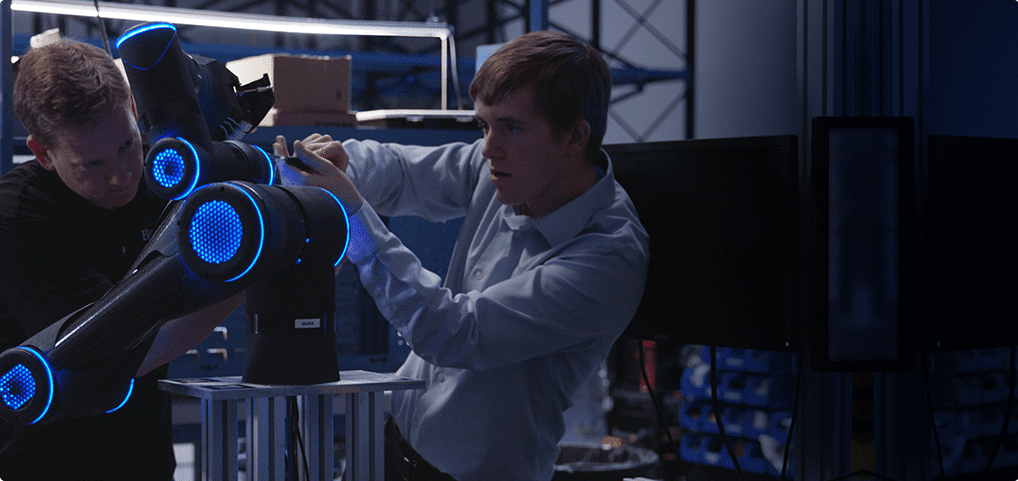
Bastian Solutions envisioned a customizable, next-generation materials handling robot made with additive manufacturing. Fast Radius helped them save $100,000 in production costs by transitioning nearly half the bill of materials to additive parts.
THE CHALLENGE
Using additive manufacturing to enable a customizable solution
Bastian Solutions needed a partner like Fast Radius to make customizable materials handling systems possible.
Bastian Solutions, a leading materials handling company owned by Toyota Advanced Logistics, created a new disruptive materials handler that required an equally disruptive production method — additive manufacturing. Fast Radius made their vision a reality, serving as a close manufacturing innovation partner through the development and production lifecycle.
The Bastian Solutions Shuttle System is an advanced, customizable electric robot arm-and-shuttle combo that autonomously picks and moves a range of differently sized and weighted products. Bastian Solutions created the system in order to solve a complex problem: Retailers need innovative materials handling technology that can navigate tight warehouse spaces, filling orders quickly to meet rising shopper expectations for on-demand delivery. These systems must have picking capabilities that can handle a wide variety of product shapes, sizes and densities.
However, it’s hardly “one-size-fits-all” when it comes to purchasing a materials handling robot. And customization, with all of its retooling, can be expensive. To make this truly innovative advanced materials handling robot and its customizations possible, Bastian Solutions needed the help of Fast Radius and its access to technology partners HP 3D Printing and Carbon® .
MAKING IT POSSIBLE
Rapid iterations and additive production
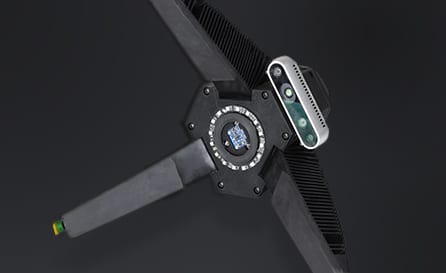
1. Rapid manufacturing of custom parts
Digital manufacturing with Fast Radius completely eliminates the need for tooling. By using industrial-grade 3D printing for critical parts, Bastian Solutions can quickly scale the robot arm for its customers’ requirements. In fact, nearly 50% of the bill of materials (BOM) are made using additive manufacturing in Fast Radius’ Chicago factory. Once the adjusted design is submitted to Fast Radius’s Virtual Warehouse™, Bastian Solutions receives the additive parts in days instead of weeks or months. This helps customers get their new materials handling systems up and running with minimal interruption to their business.
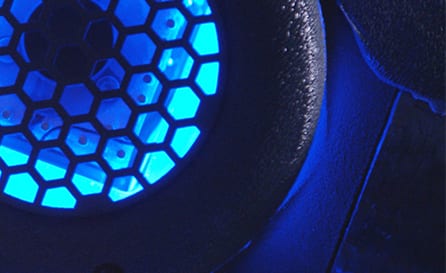
2. A lightweight, energy-efficient machine
In the past, Bastian Solutions’ materials handling robots were typically made with metal. But HP Multi Jet Fusion allowed the company to swap out metal components for ones made with HP 3D High Reusability (HR) PA 12 Glass Beads (a proprietary HP nylon material), making the parts lighter and more efficient to produce. A lighter robot arm means that less energy is required to shuttle it around a warehouse or retail floor. Since the lighter robot conducts less heat while in motion, it requires less energy to cool.
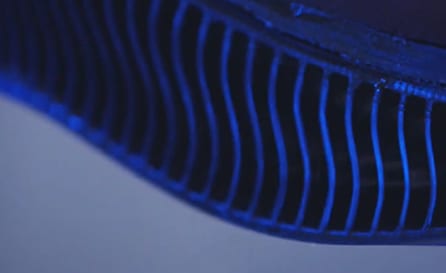
3. A multi-faceted gripper
The gripper on a materials handling robot must be able to securely grab a wide variety of objects in a retailer’s inventory. Fast Radius’s broad additive technology capabilities made it possible for Bastian Solutions to develop a proprietary “Shark Fin” adaptive gripper using Carbon® Digital Light Synthesis™ and EPU 40 material. Carbon’s material enabled the development of a unique set of fingers that are strong but pliable — capable of picking up anything from laundry detergent to lip gloss.
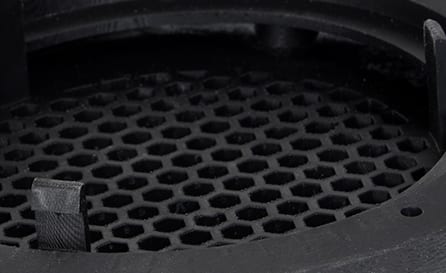
4. Enhanced protective parts
Fast Radius made many of the plating and parts built for support or protection using Carbon DLS. With access to Carbon DLS, Bastian Solutions was able to tap into Carbon’s extensive material library, including EPU 40 and RPU 70, to experiment with different textures, durometers and lattice designs to find an exact fit for their product.
5. Significant project time and cost savings
Making almost half of their BOM with additive manufacturing not only improved the final product, but it also saved Bastian Solutions considerable time and money. By using Fast Radius’s manufacturing innovation platform and team of application engineers, Bastian Solutions was able to design, produce and test hundreds of prototypes in fewer than 20 months. The process cut two years off the project development cycle and saved $100,000 in production costs.
THE RESULTS
By partnering with Fast Radius, the Bastian solutions team developed an innovative, customizable materials handling robot that they can offer at a competitive price
100+
prototypes designed and tested in less than 20 months
2 years
cut from the development cycle
45%
of the final parts made with additive technology
50%
of the BOM made using additive manufacturing
We envisioned that additively manufacturing specific parts would make the Bastian Solutions Shuttle System the most efficient and agile robotic picker available on the market. The additive manufacturing process will enable us to customize each robot picker to fit a customer’s particular warehouse environment.
Gallery
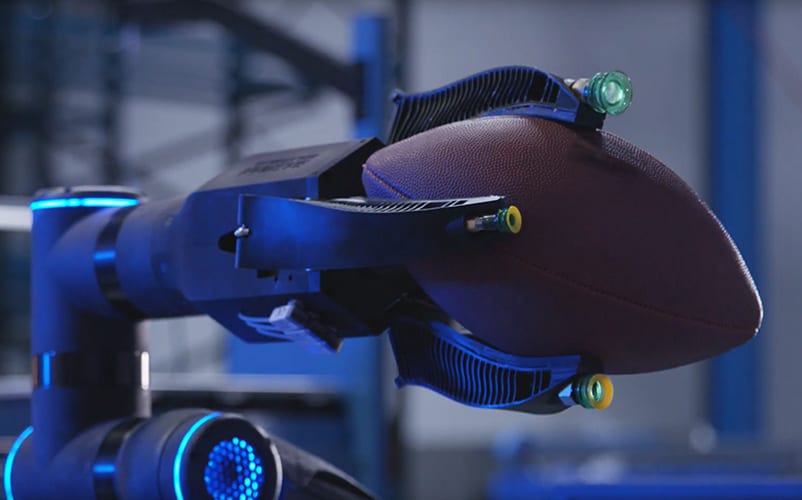
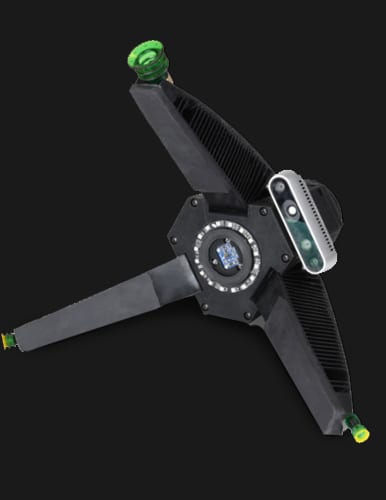
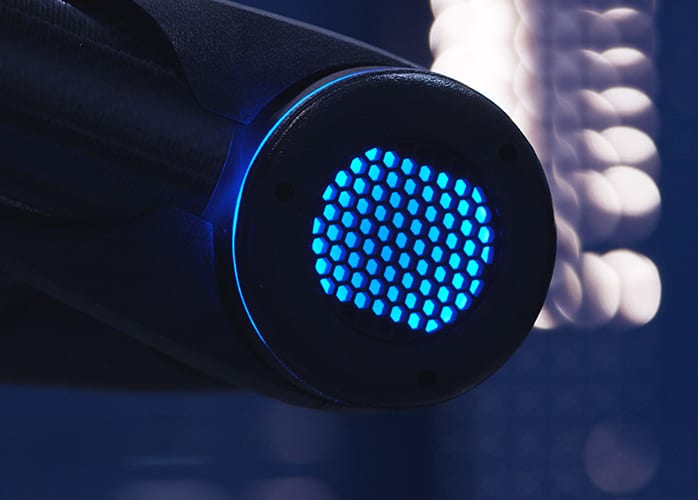
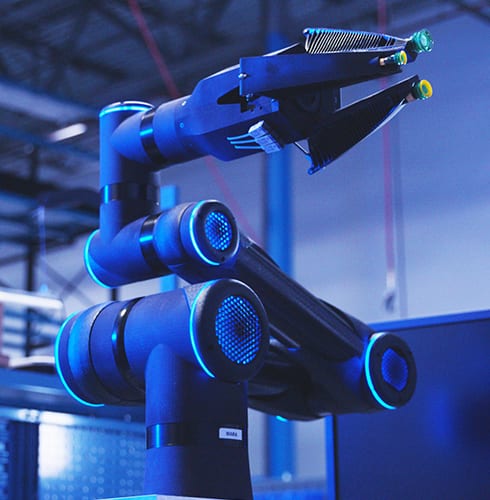

 Back
Back

